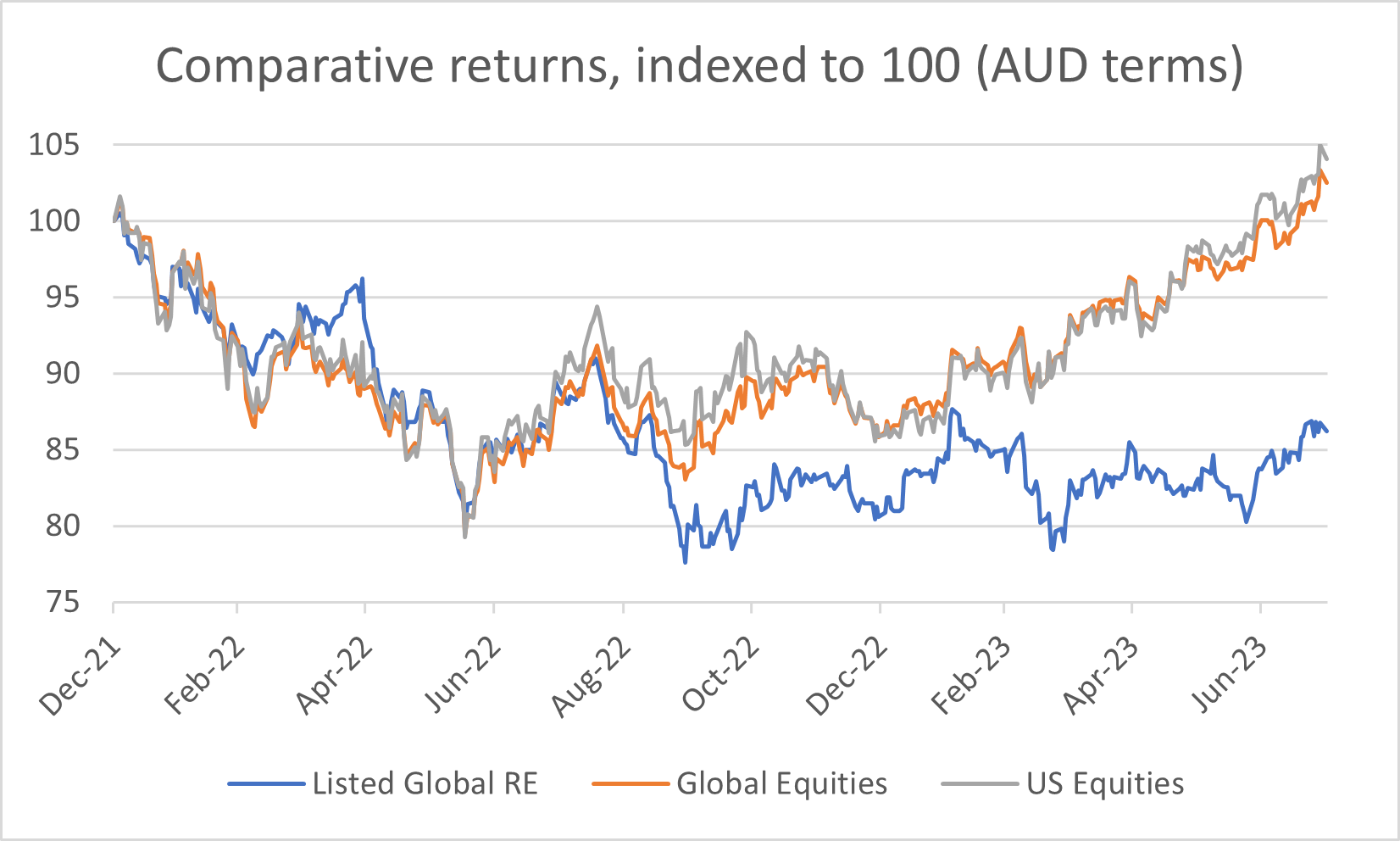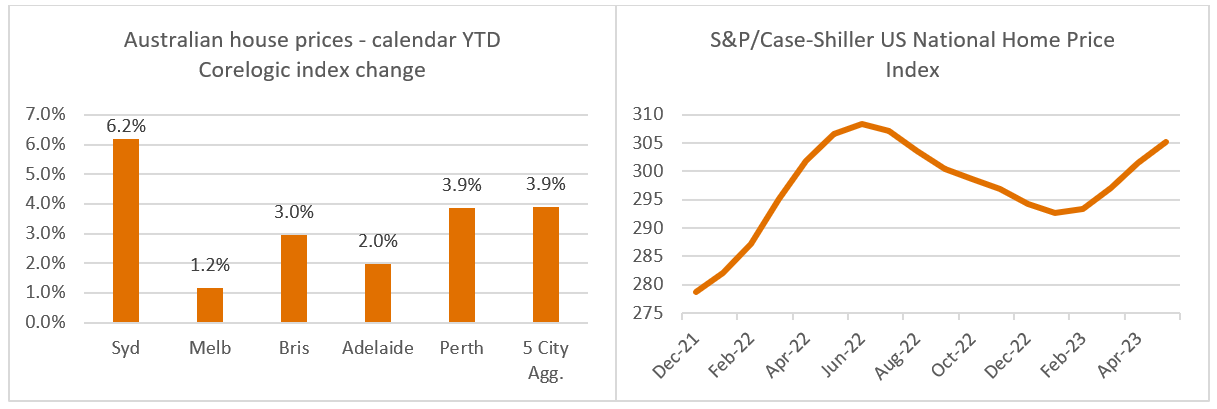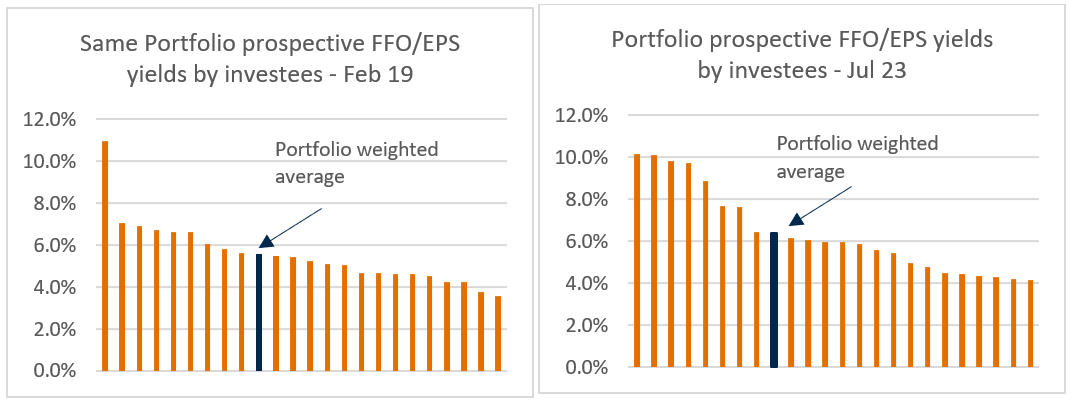NEWS

17 Aug 2023 - Global equities: The more AI grows, the smaller the market could be
|
Global equities: The more AI grows, the smaller the market could be Pendal August 2023 |
|
HOW should investors think about AI? There is little doubt that advances in artificial intelligence technology promise to fundamentally disrupt how business is conducted, says Pendal's Samir Mehta. But the question investors should ask is not whether the transformation will occur, but when and at what cost -- and who might benefit, he says. "People have been overly excited by AI. But the reality is that it is not going to be instant. We are talking years before the full benefits start to materialise," says Mehta, who manages Pendal Asian Share Fund. AI stocks have been on a tear in 2023. Microsoft's US$10 billion investment in OpenAI, the high-profile creator of ChatGPT, has sent its shares up 40 per cent this year. Taiwan Semiconductor Manufacturing Company -- which makes silicon chips for companies like AI giant Nvidia Corp -- is up more than 20 per cent this year as investors back its exposure to the AI boom. But the market's excitement is divorced from reality. Speculative fervourMicrosoft disappointed investors last month when it cautioned that revenue growth from AI would be gradual, but spending would be aggressive. At TSMC, AI accounts for just 6 per cent of revenue, with the balance of sales coming from making chips for laptops and phones -- a market that is not growing, says Mehta. "There are many other examples -- companies like Quanta Computer and Wistron Corp make the servers that mostly go into data centres for the operations of cloud businesses. "Only a small part of it is being used for AI-related services. But just that association has meant that even though growth is negative in 2023 -- and expectations for 2024 and the perception that demand for AI-related servers is high -- some of these stocks have doubled in the last two or three months. That's a speculative fervour." Mehta says one factor counting against investors in AI is that the technology's very success could curtail demand. Many AI services are priced on a per-user licence, leading analysts to create long term industry revenue forecasts by assuming a take-up rate among employed people. But if AI succeeds in its promise of making business more productive, companies will reduce staffing. "The effect of raising productivity is going to mean fewer people will need that software because fewer people are employed," he says. Lessons from AI maniaSo, what lessons can be taken from the AI mania gripping markets this year? Mehta says the main lesson is that the ultimate beneficiaries of technological changes like AI are not always apparent early on. "The winners are going to be quite diverse and may not turn out to be the ones that we think of intuitively," he says. But another more immediately useful lesson for investors is that rising interest rates and tightening monetary policy may not be squeezing off liquidity as quickly as conventional wisdom would suggest. "It is a truism that when you have a speculative mania or bubble, at the heart of it is always massive liquidity. "The housing bubbles in the US and China, the credit card bubble in Korea, the cryptocurrency and NFC mania, those shared scooters and bikes -- invariably they are a manifestation of tremendously loose liquidity. "So, in 2023, any perceptions that we're in a tight market environment have clearly turned out to be wrong." Author: Samir Mehta, Senior Fund Manager |
|
Funds operated by this manager: Pendal Focus Australian Share Fund, Pendal Global Select Fund - Class R, Pendal Horizon Sustainable Australian Share Fund, Pendal MicroCap Opportunities Fund, Pendal Sustainable Australian Fixed Interest Fund - Class R, Regnan Global Equity Impact Solutions Fund - Class R, Regnan Credit Impact Trust Fund |
|
This information has been prepared by Pendal Fund Services Limited (PFSL) ABN 13 161 249 332, AFSL No 431426 and is current as at December 8, 2021. PFSL is the responsible entity and issuer of units in the Pendal Multi-Asset Target Return Fund (Fund) ARSN: 623 987 968. A product disclosure statement (PDS) is available for the Fund and can be obtained by calling 1300 346 821 or visiting www.pendalgroup.com. The Target Market Determination (TMD) for the Fund is available at www.pendalgroup.com/ddo. You should obtain and consider the PDS and the TMD before deciding whether to acquire, continue to hold or dispose of units in the Fund. An investment in the Fund or any of the funds referred to in this web page is subject to investment risk, including possible delays in repayment of withdrawal proceeds and loss of income and principal invested. This information is for general purposes only, should not be considered as a comprehensive statement on any matter and should not be relied upon as such. It has been prepared without taking into account any recipient's personal objectives, financial situation or needs. Because of this, recipients should, before acting on this information, consider its appropriateness having regard to their individual objectives, financial situation and needs. This information is not to be regarded as a securities recommendation. The information may contain material provided by third parties, is given in good faith and has been derived from sources believed to be accurate as at its issue date. While such material is published with necessary permission, and while all reasonable care has been taken to ensure that the information is complete and correct, to the maximum extent permitted by law neither PFSL nor any company in the Pendal group accepts any responsibility or liability for the accuracy or completeness of this information. Performance figures are calculated in accordance with the Financial Services Council (FSC) standards. Performance data (post-fee) assumes reinvestment of distributions and is calculated using exit prices, net of management costs. Performance data (pre-fee) is calculated by adding back management costs to the post-fee performance. Past performance is not a reliable indicator of future performance. Any projections are predictive only and should not be relied upon when making an investment decision or recommendation. Whilst we have used every effort to ensure that the assumptions on which the projections are based are reasonable, the projections may be based on incorrect assumptions or may not take into account known or unknown risks and uncertainties. The actual results may differ materially from these projections. For more information, please call Customer Relations on 1300 346 821 8am to 6pm (Sydney time) or visit our website www.pendalgroup.com |

16 Aug 2023 - Performance Report: ASCF High Yield Fund
[Current Manager Report if available]

16 Aug 2023 - Glenmore Asset Management - Market Commentary
|
Market Commentary - July Glenmore Asset Management August 2023 Globally equity markets were stronger in July. The key driver was lower than expected inflation data from the US and Australia which gave investors optimism around the expected number of interest rate rises required to bring inflation to targeted levels. In the US, the S&P 500 rose +3.1%, the Nasdaq increased +4.1%, whilst in the UK, the FTSE was up +2.2%. In Australia, the All Ordinaries Accumulation index rose +3.0%. Top performing sectors were Energy (boosted by crude oil rising +16%) and Banks. Healthcare underperformed as investors sought exposure to more cyclical sectors. Interestingly on the ASX, small caps outperformed large caps in the month (Small Ords Acc Index +3.5% vs All Ords Acc Index +3.0%). August will see the vast majority of the Fund's holdings report their results for the six months to 30 June 2023. We look forward to catching up with the various management teams to see how they are trading in what is a challenging business environment. Many companies have already pre announced their results for the six months to 30 June, so commentary and outlook statements will be particularly interesting to investors. Funds operated by this manager: |

15 Aug 2023 - Performance Report: Delft Partners Global High Conviction Strategy
[Current Manager Report if available]

15 Aug 2023 - Performance Report: Airlie Australian Share Fund
[Current Manager Report if available]

15 Aug 2023 - Investment Perspectives: Thinking about the cycle
|
Investment Perspectives: Thinking about the cycle Quay Global Investors August 2023 Being an investor in listed global real estate has been tough of late. With expectations of a global recession caused by unprecedented interest rate increases, sentiment towards listed global real estate has soured. But what if there are other nuances at play, and the market is creating long-term opportunities for savvy investors? High rates impacting REITsThe Listed Global Real Estate Index peaked at the end of 2021. For unhedged Australian investors, it has since declined by approximately 14%, and underperformed global and US equities by 16% and 17% respectively.
These returns have corresponded with an interest rate hiking cycle kicked off by the Bank of England in December 2021, followed by the US Federal Reserve rate in March 2022. Most other central banks in developed markets around the world followed soon after in response to rising inflation. Over the same period, bonds also started selling off. In the US, the 10-year treasury yield, the benchmark risk-free rate rose from 1.4% to the current rate of 4.0%, peaking as high as 4.3% along the way. The impact to REITs through a higher discount rate applied to the valuation of the cashflows has been immediate. Adding to the sentiment has been the expected reduction in levered cashflows as higher rates make their way through the P&L. As interest rates are used as a tool to cool the economy, the inference is that tenant demand (and therefore market rent growth) should follow suit, further tempering the expected outlook. While this rationale is entirely sensible, sometimes the market playbook doesn't follow suit. The mismatch between supply and demandWe recently toured North America, the UK and Europe, and met with 50+ listed real estate management teams across many sectors. Given the general share price malaise, and the magnitude and pace of rate hikes, it would not be unreasonable to expect a tempered outlook. However, observations 'on the ground' were in stark contrast, and most sectors had a positive outlook. And while focus is often on demand, a reccurring topic of the discussion was supply - or more specifically, lack thereof. Supply has been falling across many sectors for similar reasons. There was a general pause during Covid due to supply chain disruptions, labour shortages and general uncertainty. This is impacting deliveries today, while new development, and thereby future supply, is being impacted by construction cost inflation combined with a restrictive financing environment. Nowhere is this dynamic more obvious in Australia right now than in the local residential market, which is now steadily rising despite higher interest rates. It's also the same in the US. This 'supply shock' in the face of steady demand, which is playing out in higher residential prices, will also play out across many sectors around the world in higher rents. If you are an existing landlord with a sensible balance sheet, the future is looking quite rosy.
Source: CoreLogic, Federal Reserve Bank of St. Louis, Quay Global Investors It's not just in residential markets where the effects of a mismatch between supply and demand are being felt. The effects on rentsSenior housing in the US and Canada is an example of how both demand and supply are playing out favorably. Baby Boomers are fast approaching their 80s, which is the average age of residents' entry into assisted living senior housing. Demand from this cohort is strong and growing. In addition, rising construction costs, higher financing costs and Covid disruption has meant that there has been a lack of construction over the last three years, with inventory growth now at the lowest level since NIC MAP Vision, a provider of senior housing research, began reporting data in 2006. With a benign supply outlook and growing demand, vacancy rates are declining and rents are growing. We believe the sector is now on the cusp of a multi-year period of outsized rental growth. The theme of lack of supply is also being felt in the retail sector. Since the GFC, for a variety of reasons, supply has been on the decline. In fact, it has been well documented that many malls in the US have been shut as vacancy grew in the period post the GFC and prior to Covid. This was due to general weak demand, competition from internet retail, retailer bankruptcies and historic oversupply. However, since the significant stimulus introduced by governments in response to Covid, retail sales have boomed. The outcome has been a reversal in fortunes for retail landlords, with occupancies surging and cashflows returning to growth. And it's not just the in the US where lack of supply is helping rents to grow. In the UK student accommodation sector, The Unite Group recently gave an update stating that they expect rental growth to be around +7% for the upcoming academic year. This compares to a long-term rate of 3-3.5% and a period during Covid when they were shuttered. Driving this uptick is strong demand, surpassing pre-Covid levels, from students and universities seeking accommodation combined with an acute shortage of available beds and supply that cannot keep pace. A similar scenario is playing out in manufactured housing, single family homes and coastal apartment markets in the US, as well as many other sectors across other geographies. There are, however, exceptions where outsized development margins meant supply wasn't deterred by higher costs and restrictive financing. Examples include industrial, life science offices and sunbelt apartments, and all were considered beneficiaries of Covid. Within these markets where supply is constrained, all else being equal, until rents and/or values rise to levels that support new development, supply will continue to remain low. In the meantime, as demand continues to grow, rents will also grow. Depending on the sector and construction lead times, it could take years for supply to respond. The earnings growth opportunityFor our investees, this is translating into meaningful earnings growth. Since 2019, the average prospective earnings per share growth for the Quay Global Real Estate Fund (Unhedged) on a same stock basis, has increased by +20% (4.5% annualised). This is not a bad outcome considering Covid disruptions and 18 months of unprecedented interest rate rises. What's more, for the current year, we expect this rate of growth to accelerate to 5.5%. The negative returns in listed global real estate have been widespread, and we too have been caught up in these losses despite earnings that have been growing. Over the same period, since returns tended negative, the average FFO yield of the portfolio has increased from 5.6% to a current 6.4%, or a 16% derate. Combined with average earnings that are 20% higher, this is a 36% de-rate. To us, it would seem that recent returns have been driven by nothing more than market sentiment. The fundamentals have been solid.
Source: Quay Global Investors, Bloomberg, Sentieo Concluding thoughtsEconomists and commentators have expressed surprise at the resilience and recent strength of residential markets. In the local market, not only do the dire 30% falls from peak now seem unlikely, but based on current trajectory, new highs in the market could be probable by early 2024. This has been no surprise to us, as we spoke about in our recent Investment Perspectives article, Is the Aussie residential market bottoming? Ultimately, both demand and supply matter. But the 'supply shock' driving residential property prices is also a global phenomenon across many sectors for largely the same reasons. Most new developments simply don't stack up due to rising construction costs, difficult access to funding and uncertain transaction markets. As such, so long as tenant demand remains in place, the solid earnings fundamentals across many geographies and sectors we have enjoyed since 2019 are expected to continue, driving earnings growth, valuation and (for the patient) asset price performance. It's happening in both the local property market and globally. Author: Justin Blaess, Principal & Portfolio Manager Funds operated by this manager: Quay Global Real Estate Fund (AUD Hedged), Quay Global Real Estate Fund (Unhedged) For more insights from Quay Global Investors, visit quaygi.com The content contained in this audio represents the opinions of the speakers. The speakers may hold either long or short positions in securities of various companies discussed in the audio. This commentary in no way constitutes a solicitation of business or investment advice. It is intended solely as an avenue for the speakers to express their personal views on investing and for the entertainment of the listener. |

14 Aug 2023 - Performance Report: Bennelong Long Short Equity Fund
[Current Manager Report if available]

14 Aug 2023 - Performance Report: Skerryvore Global Emerging Markets All-Cap Equity Fund
[Current Manager Report if available]

11 Aug 2023 - Hedge Clippings | 11 August 2023
|
|
|
|
Hedge Clippings | 11 August 2023 CBA's results shows what's happening in the 'burbs. News & Insights Political lobbying risks in the US | 4D Infrastructure The three factors driving stock returns | Magellan Asset Management July 2023 Performance News 4D Global Infrastructure Fund (Unhedged) Glenmore Australian Equities Fund Quay Global Real Estate Fund (Unhedged) |
|
|
If you'd like to receive Hedge Clippings direct to your inbox each Friday |

11 Aug 2023 - Performance Report: Bennelong Concentrated Australian Equities Fund
[Current Manager Report if available]





